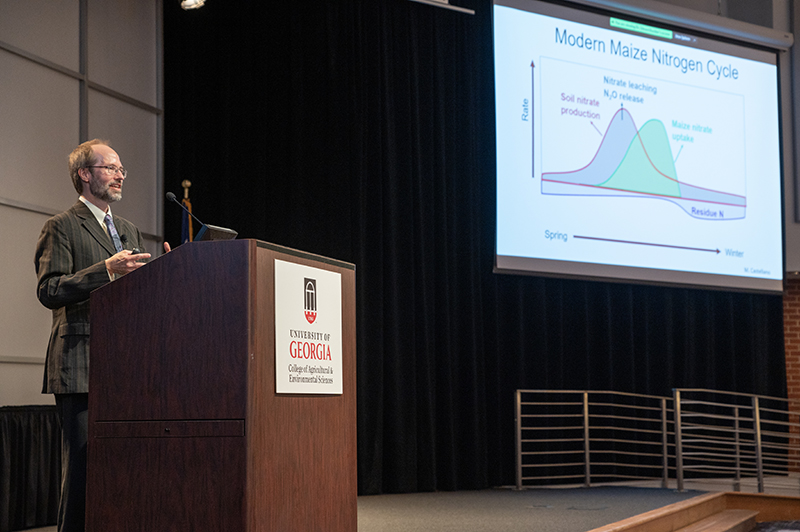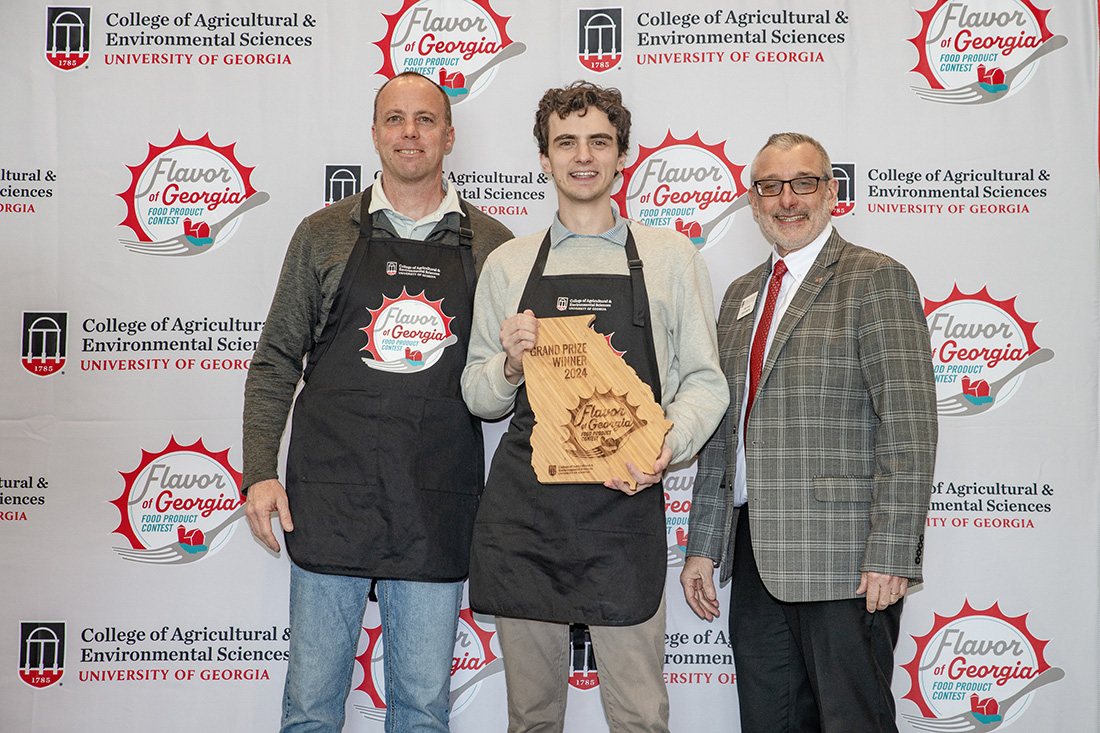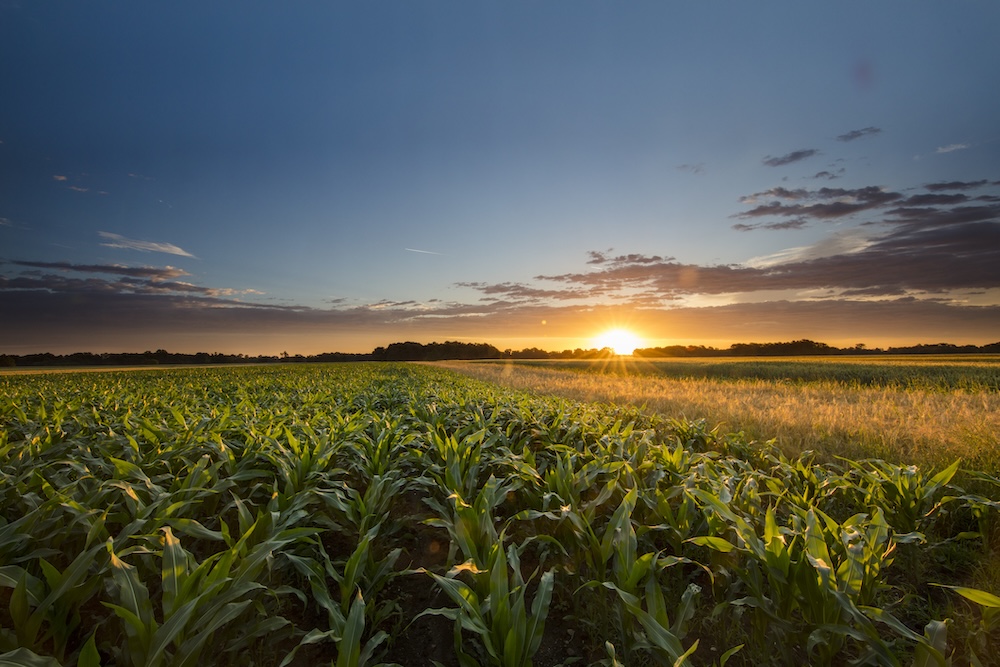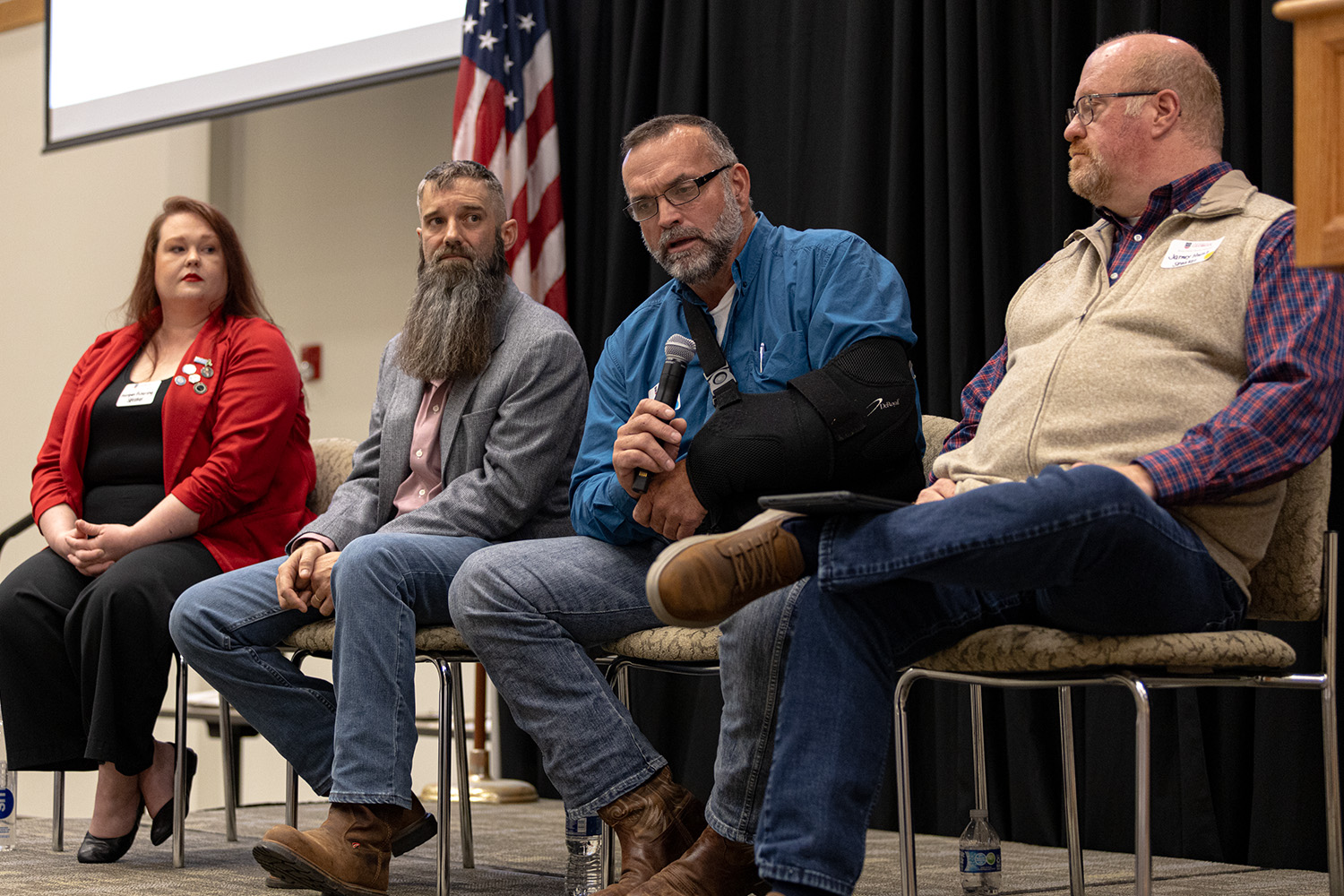
Without direct intervention, food systems could be the largest contributor to environmental pollution by mid-century.
This warning — and more importantly, the research efforts in place to make change — were highlighted in Edward Buckler’s keynote address at the 2023 D.W. Brooks Lecture and Awards.
Buckler, a research geneticist with the Agricultural Research Service, the U.S. Department of Agriculture’s chief scientific in-house research agency, also serves as an adjunct professor in plant breeding and genetics at Cornell University with an educational background in molecular evolution and archaeology.
“Right now our food system is costing us more than the value we are getting out of it. This is something we need to fundamentally address,“ Buckler said during his lecture, Advancing Agriculture: Leveraging Quantitative Genetics and Genomics to Improve Efficiency and Reduce Emissions. ”The most important thing we do is feed everybody across the planet. But we also need to think about what our environmental impact is and the environmental pollution side of it. There are a lot of technologies, but genetics and breeding are key to addressing this issue.”
Buckler’s lab uses genomic, computation and field approaches to accelerate breeding in maize, sorghum, cassava and other crops to reduce emissions, ensure food security, improve nutrition and responsibly respond to climate change.
Agriculture has a nitrogen problem — 88% of nitrogen inputs are lost, and roughly 11% of total U.S. greenhouse gases are a result of nitrogen within farm systems — but there is hope, Buckler added.
Providing a broad perspective on agricultural nitrogen, a CENSA — Circular Economy for Nitrogen Sustainability in Agriculture — approach could reduce agriculture greenhouse gases by 50% or more.
“Leveraging circular economies could reduce greenhouse gas and water pollution by 80% in the U.S.,” Buckler said.
The 2023 D.W. Brooks Faculty Awards for Excellence were also recognized at a luncheon held annually in honor of the late D.W. Brooks, a Georgian who dedicated his life to the advancement of agriculture across the state and world.
Brooks, who earned bachelor’s and master’s degrees in agronomy from the University of Georgia College of Agricultural and Environmental Sciences (CAES) in 1922 and 1924, advised seven U.S. presidents throughout his life on various policy and trade issues related to agriculture. He was honored as the first inductee into UGA's Agricultural Hall of Fame in 1972; received the Distinguished Agribusiness Award from the Georgia Agribusiness Council; and was named Progressive Farmer's “Man of the Year in Agriculture in the South” in 1966.
A testament to his lifelong legacy, Brooks began his career teaching agronomy at UGA at age 19 following his graduation, becoming the youngest faculty member at the university. He later returned to teaching until age 97 to impart knowledge he learned as a businessman, becoming the university’s oldest faculty member.
CAES hosts the annual lecture series and faculty awards celebration in Brooks’ memory. It is supported by a fund created to honor his contributions to agriculture and is part of the CAES Signature Events series.
This year’s winners include Samuel Aggrey, recognized for Excellence in Diversity; Alison Berg, recognized for Excellence in Extension; Tammy Cheely, recognized for Excellence in Public Service Extension; Brian Kiepper, recognized for Excellence in Teaching; Woo Kyun Kim, recognized for Excellence in International Agricultural and Environmental Sciences; and John Snider, recognized for Excellence in Research.
For more information on the D.W. Brooks Lecture and Awards, visit dwbrooks.caes.uga.edu.






